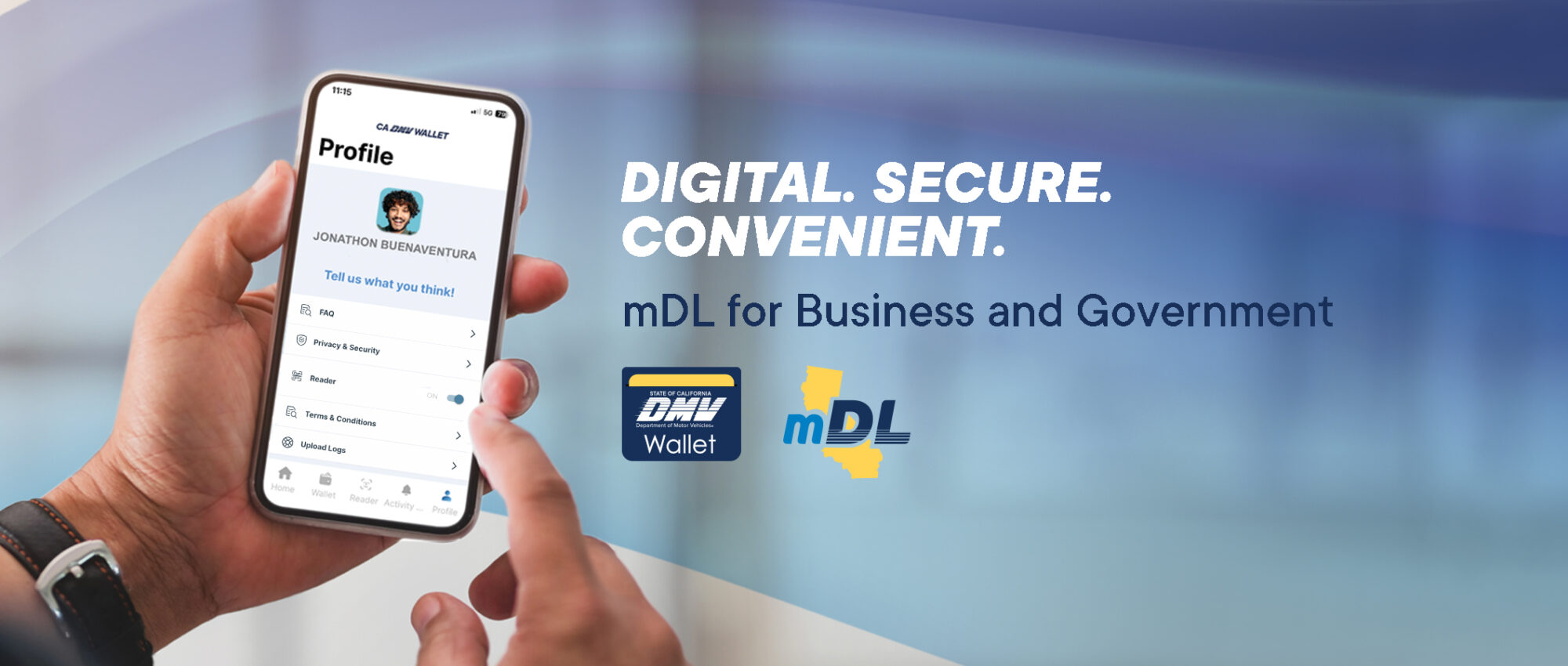mDL for Business & Government
The mobile driver’s license (mDL) digital identity credential offers a range of benefits for both businesses and government entities.
mDL Reader
The mDL Reader enables your business to serve customers presenting the mDL on their mobile phone. Just download the DMV Wallet, add your mDL to the wallet, and you’re in business.
TruAge for Retailers/ Businesses
Businesses can now sign up for the TruAge Program to have your existing POS terminals accept CA mDLs for age and identity verification. Learn more information about the TruAge program.
OpenCred for Relying Parties
OpenCred is an open source platform designed to make it easy for organizations (relying parties) to check credentials from individuals (holders) in a secure and verifiable way.
OpenCred for Developers
OpenCred is an open source software platform for developers to work with relying parties to enable multiple use cases across Government, Corporations and SMB sectors.
Benefits to CA Residents & State Operations
In the future, residents may use mDL to operate motor vehicles and board airplanes as well as access health care, secure financial assistance, prove age, and much more. CA & residents will see:
- Cost Savings – Eliminating manual verification for benefits would save state agencies tens of millions.
- Improved Privacy – Residents control their data instead of a third party seeking to monetize it.
- Reduced Fraud – Digital accuracy and data authenticity ensure against errors and falsification.
- Better Customer Service – Easier to do business with the state, private sector, in-person, or online.
- Bias Mitigation – Fewer opportunities for bias by sharing data on a need to know basis.
ISO 18013-5 IACA Certification
This resource is for businesses and government entities who are looking to consume/read the new Mobile Driver’s Licenses (mDL) California released recently. This will provide technology and process guidance, resources and FAQs.

